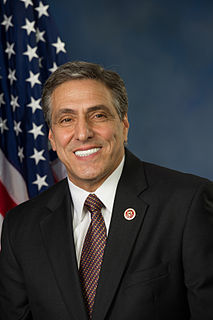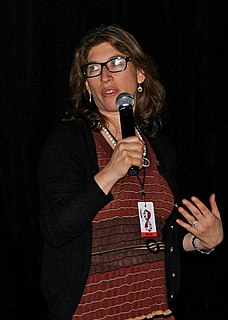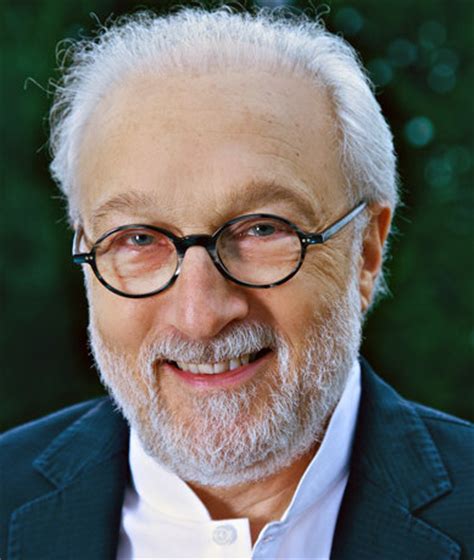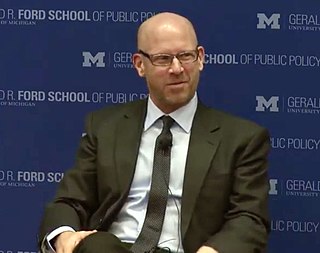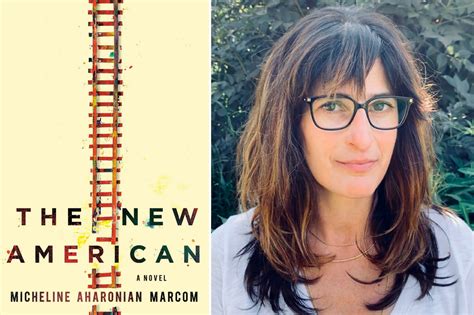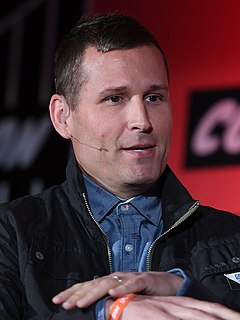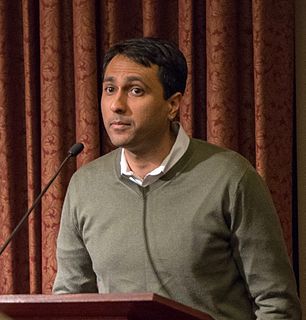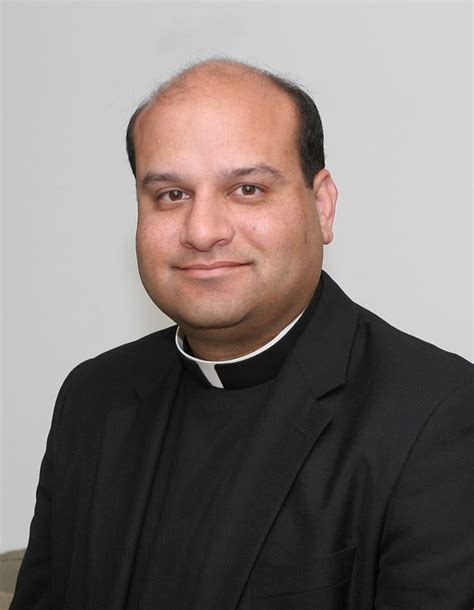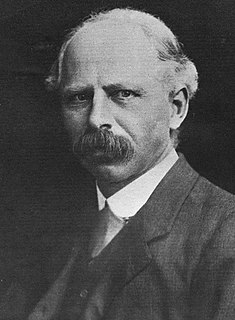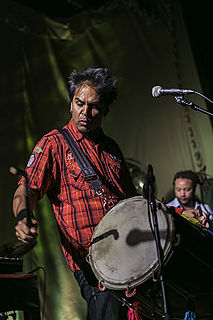Top 1200 Social Darwinism Quotes & Sayings - Page 20
Explore popular Social Darwinism quotes.
Last updated on December 4, 2024.
I was a trial lawyer. At the same time, I was a teacher. I taught about the political and social content of film for American University. Then I left and became a teacher at the University of California at Santa Cruz. I taught about the political and social content of film, but I also taught a course in law for undergraduates.
Architecture was, or is, a kind of hobby, an inclination I have to fiddling around and building things. Putting up shelves or cupboards, or making tools, or designing houses ... it always has a functional or social motivation. If social changes are in the air, I am gripped immediately by the desire to build, and I think that I accelerate or anticipate changes in my life by doing so, at least in draft. In the case of my house, that was anticipation: in other words, first build, then change one's life.
High school was interesting. For a lot of people, high school was just a big social experiment, and I think the value of high school was not so much learning how to be a great student... but I think it's learning how to interact with people and be social. I would say that in that endeavor, I completely failed.
The widespread inability to understand technological artifacts as fabricated entities, as social and cultural phenomena, derives from the fact that in retrospect only those technologies that prove functional for a culture and can be integrated into everyday life are 'left over.' However, the perception of what is functional, successful and useful is itself the product of social and cultural--and last but not least--political and economic processes. Selection processes and abandoned products and product forms are usually not discussed.
Immigration along with nonwhite birthrates will make white people a minority totally vulnerable to the political, social, and economic will of blacks, Mexicans, Puerto Ricans, and Orientals. A social upheaval is now beginning to occur that will be the funeral dirge of the America we love. I shudder to contemplate the future under nonwhite occupation; rapes, murders, robberies multiplied a hundred fold, illiteracy such as in Haiti, medicine such as in Mexico, and tyranny such as in Togoland.
If you work with such people almost on the level of spiritual direction, you see that they are people who prefer a world view of order and even punitiveness. And for some reason, there's a feeling that the male psyche is going to give that to them. And if that's your view of religion, which it is for many people, if they've never come to the mystical level, religion is for social order and to maintain social order.
The State always moves slowly and grudgingly towards any purpose that accrues to society's advantage, but moves rapidly and with alacrity towards one that accrues to its own advantage; nor does it ever move towards social purposes on its own initiative, but only under heavy pressure, while its motion towards anti-social purposes is self-sprung.
I see a world in the future in which we understand that all life is related to us and we treat that life with great humility and respect. I see us as well as social creatures, and when I began to look back and say, ‘what is the fundamental bottom line for us as social creatures?’I couldn’t believe it because it seemed so hippy dippy, but it was Love. Love is the force that makes us fully human.
The worst aspect of dating from the perspective of many men is how dating can feel to a man like robbery by social custom - the social custom of him taking money out of his pocket, giving it to her, and calling it a date. To a young man, the worst dates feel like being robbed and rejected. Boys risk death to avoid rejection (e.g., by joining the Army
There's people, like me and Jaden [Smith], who want to utilize social media to elevate the consciousness of those people who feel like all they want from social media is to be famous.Like, you can actually be a voice. You can actually say something that's inspiring and not just make people feel like you need to buy things and be a certain way.
It's amnesty that America can't afford. We have to stop people from coming in illegally. This will be a green light for anyone who wants to come to America illegally and then be granted citizenship one day... The majority that are here illegally are low-skilled or may not even have a high school diploma. The Republican Party is not going to compete over who can give more social programs out. They will become Democrats because of the social programs they'll depend on.
Instead of recognizing the State as ‘the common enemy of all well-disposed, industrious and decent men,’ the run of mankind, with rare exceptions, regards it not only as a final and indispensable entity, but also as, in the main, beneficent. The mass-man, ignorant of its history, regards its character and intentions as social rather than anti-social; and in that faith he is willing to put at its disposal an indefinite credit of knavery, mendacity and chicane, upon which its administrators may draw at will.
Hip-hop has been so important in my work, because it speaks to the idea of money being tied to cultural capital in an honest and transparent way. When I was growing up in LA, money was equivalent to class, and it was a passport. Hip-hop emphasizes that, but Hollywood and show business bear it out. If you have money, there really is no barrier to social mobility. There are still social clubs in Newport where you can't get in even if you have money, but that is really rare.
Mom & pop stores are not about something small; they are about something big. Ninety percent of all U.S. businesses are family owned or controlled. They are important not only for the food, drink, clothing, and tools they sell us, but also for providing us with intellectual stimulation, social interaction, and connection to our communities. We must have mom & pop stores because we are social animals. We crave to be part of the marketplace.
Mr. J.S. Mill speaks, in his celebrated work, "Utilitarianism," of the social feelings as a "powerful natural sentiment," and as "the natural basis of sentiment for utilitarian morality," but on the previous page he says, "if, as is my own belief, the moral feelings are not innate, but acquired, they are not for that reason less natural." It is with hesitation that I venture to differ from so profound a thinker, but it can hardly be disputed that the social feelings are instinctive or innate in the lower animals; and why should they not be so in man?
The problem with Antigone is that she stood up to the despot Creon, but in such a way that she ended up dying. So she bought her defiance with her death. The real question I ended up asking was, "What would it mean for Antigone to have stood up to Creon and lived?" And the only way she could have lived is if she had had a serious social movement with her. If she arrived with a social movement to take down the despot, maybe it would have taken 18 days only, like in Egypt. It's really important to be able to re-situate one's rage and destitution in the context of a social movement.
'Rugged individualism' has meant all the 'individualism' for the masters, while the people are regimented into a slave caste to serve a handful of self-seeking 'supermen.' America is perhaps the best representative of this kind of individualism, in whose name political tyranny and social oppression are defended and held up as virtues; while every aspiration and attempt of man to gain freedom and social opportunity to live is denounced as 'un-American' and evil in the name of that same individuality.
Revolution is everywhere, in everything. It is infinite. There is no final revolution, no final number. The social revolution is only one of an infinite number of numbers: the law of revolution is not a social law, but an immeasurably greater one. It is a cosmic, universal law - like the laws of the conservation of energy and of the dissipation of energy (entropy).
There are those, on the one hand, who hope to achieve the social revolution through the State by preserving and even extending most of its powers to be used for the revolution. And there are those like ourselves who see the State, both in its present form, in its very essence, and in whatever guise it might appear, an obstacle to the social revolution, the greatest hindrance to the birth of a society based on equality and liberty, as well as the historic means designed to prevent this blossoming.
Those who can bring themselves to renounce wealth, position and power accruing from a social system based on violence and putting a premium on acquisitiveness, and to identify themselves in some real fashion with the struggle of the masses toward the light, may help in a measure - more, doubtless, by life than by words - to devise a more excellent way, a technique of social progress less crude, brutal, costly and slow than mankind has yet evolved.
People do need a social license to go, "Ha ha ha," and have a good time. It's a strange thing. There's a lot of social ritual around comedy and laughter. It's a bonding experience for groups, but nobody can tell you much about how funny somebody is. Sometimes people just need to be in a group and be laughing together, just like they need to be in a group in watching some really terrifying film.
The Social Citizen is the best, most thorough, and most methodologically sophisticated treatment of the role of social networks in political behavior that I have ever read. Betsy Sinclair shows just how strongly we are influenced to express ourselves politically by our family, neighbors, and friends. We are on the verge of a sea change in political science, and this will be one of the most important books we refer to when we describe what happened to the discipline in the twenty-first century.
They know your name, address, telephone number, credit card numbers, who ELSE is driving the car "for insurance", ... your driver's license number. In the state of Massachusetts, this is the same number as that used for Social Security, unless you object to such use. In THAT case, you are ASSIGNED a number and you reside forever more on the list of "weird people who don't give out their Social Security Number in Massachusetts."
Mental illness is a real thing. It has real material consequences for people who suffer from it and at the time even the most biological finding reflects social context in very important ways, and so I think psychiatry is better off looking both at biology and at social context and really trying to think of the relationship between these and I think doctors and patients are better off that way.
I began to firmly change my mind when I saw how young Egyptians used Facebook, for example, to begin to coalesce their social justice movement in their country. And a good Iranian friend of mine showed me how also in Iran, till the government shut it down, much was communicated via social media. So I'm not against. I use the internet regularly to do research. It's great but you have to use your discernment, especially if researching content.
If you happen to live in Korea, you might always suffer from anger towards people in power, because of political and social problems. I felt gloomy under this social dictatorship. Looking back, I feel like I never saw a sunrise in Seoul. When I was at university, the policemen used to measure how short the women's mini-skirts were and how long guys' hair was. We were living under a government that considers her people to be soldiers.
It's impossible to overstate how important social media has been to me and the development of my career. The fact that I can go and play venues that hold 25,000 people and sell them out is crazy.I don't have music on the radio. I'm not a pop culture icon. I'm just this kid making dance music. And yet I still can sell out massive arenas. It's truly incredible, and I think a lot of that is because of social media.
To reverse the trend and reduce the role of government in our lives, and thus alleviate the government deficit and inflation pressures, is a giant educational task. The social and economic ideas that gave birth to the transfer system must be discredited and replaced with old values of individual independence and self-reliance. The social philosophy of individual freedom and unhampered private property must again be our guiding light.
Psychologists would say that the only two important forms of social learning are imitation and teaching, and they will spend time trying to figure out if animals imitate or teach. Sometimes they find they do; sometimes they find they don't. And so that's kind of the level of controversy there. Biologists would include imitation and teaching and a range of other kinds of social learning. So we would call that culture, whereas the psychologist wouldn't.
A social entrepreneur is somebody who knows how to make an idea reality, and one of the great ideas of our time is pluralism. Can people from different backgrounds live together in mutual peace and loyalty? And what we need is a generation of young social entrepreneurs who know how to make that great idea reality in an historical moment where religious extremists are, frankly, making their idea reality.
The problem that we have is some of the more vocal countries, which parade themselves as Islamic countries, are, in fact, brutal dictatorial regimes. We don't accept them as being Sharia at all, because, what they tend to do, is they tend to just implement several aspects of the penal code and one or two morsels of the social system, but the rest of the system, like providing the basic needs and the social aspects of society and an education system, is completely ousted.
In restating this basic Christian doctrine, Benedict argues that it is not only for Christians alone. Others may not share the Christian faith in God, but the Christian proclamation that hope comes from within the person- in the realm of faith and conscience - is for them too. It offers an important protection against stifling and occasionally brutal social systems built on false hopes that come from outside the person, founded on political idealogies, economic models and social theories.
Being vegan is easy. Are there social pressures that encourage you to continue to eat, wear, and use animal products? Of course there are. But in a patriarchal, racist, homophobic, and ableist society, there are social pressures to participate and engage in sexism, racism, homophobia, and ableism. At some point, you have to decide who you are and what matters morally to you. And once you decide that you regard victimizing vulnerable nonhumans is not morally acceptable, it is easy to go and stay vegan
The question is not what anybody deserves. The question is who is to take on the God-like role of deciding what everybody else deserves. You can talk about 'social justice' all you want. But what death taxes boil down to is letting politicians take money from widows and orphans to pay for goodies that they will hand out to others, in order to buy votes to get re-elected. That is not social justice or any other kind of justice.
We in Germany could, for example, lower taxes. And who is against that? The Social Democrats.
We could also mobilize more private investments for public infrastructure projects liken the construction of highways. But the Social Democrats also reject this, even though they are at times similar to others abroad in their carping about the surplus. Incidentally, some of the consequences of the good economic situation are strong increases in wages, rising pensions and a strong labor market.
The insistence on truthfulness does not disturb the freedom of the individual. The social obligation implied in Satyagraha turns the freedom of the individual into moral freedom. An atheist is free to say or to do what he likes, provided he does what he says and says what he does. So, in the context of social relations, the freedom of the individual is moral freedom.
My view is that to get anywhere in life you have to be anti-social, otherwise you'll end up being devoured. I've never been particularly social, anyway, but if I've ever been rude, fifty per cent of it has usually been provoked by other people's attitudes. Though I do admit, like most Celts, I'm moody. It's fine until people try to cheer you up with gems like, 'snap out of it' or 'Come on, now'.
Anarchy, when it works to destroy authority in all its aspects, when it demands the abrogation of laws and the abolition of the mechanism that serves to impose them, when it refuses all hierarchical organization and preaches free agreement - at the same time strives to maintain and enlarge the precious kernel of social customs without which no human or animal society can exist. Only, instead of demanding that those social customs should be maintained through the authority of a few, it demands it from the continued action of all.
When I became a Sigma Chi it was great, because they were the pople I enjoyed being with and I was very proud of the association. It was kind of an instant confidence builder for me--that what I considered the best fraternity on campus had actually wanted me. And I had always been very shy and without a lot of confidence. So it was a really good social experience and for me it was also a social maturation. It was a great benefit.
Science fiction - and the correct shortcut is 'sf' - uses actual scientific facts or theories for the source ideas or framework of the story. It has some scientific content, however speculative. If it breaks a law of physics, it knows it's doing so and follows up the consequences. If it invents a society of aliens, it does so with some respect for and knowledge of the social sciences and what you might call social probabilities. And some of it is literarily self-aware enough to treat its metaphors as metaphors.
The challenges that young people are mobilizing against oppressive societies all over the globe are being met with a state-sponsored violence that is about more than police brutality. This is especially clear in the United States, given its transformation from a social state to a warfare state, from a state that once embraced a semblance of the social contract to one that no longer has a language for justice, community and solidarity - a state in which the bonds of fear and commodification have replaced the bonds of civic responsibility and democratic vision.
Constitutional rights are useful up to a point, but they do not serve to guarantee much more than what could be called the bourgeois conception of freedom. According to the bourgeois conception, a "free" man is essentially an element of a social machine and has only a certain set of prescribed and delimited freedoms; freedoms that are designed to serve the needs of the social machine more than those of the individual.
Man is, at one and the same time, a solitary being and a social being. As a solitary being, he attempts to protect his own existence and that of those who are closest to him, to satisfy his personal desires, and to develop his innate abilities. As a social being, he seeks to gain the recognition and affection of his fellow human beings, to share in their pleasures, to comfort them in their sorrows, and to improve their conditions of life.
The desire for guidance, love, and support prompts men to form the social or moral conception of God. This is the God of Providence, who protects, disposes, rewards, and punishes; the God who, according to the limits of the believer's outlook, loves and cherishes the life of the tribe or of the human race, or even of life itself; the comforter in sorrow and unsatisfied longing; he who preserves the souls of the dead. This is the social or moral conception of God.
The conversation should've been about middle class people. The conversation should've been about how to raise the minimum wage and strengthen Social Security. But then we started talking about this whole email stuff again. And now the outcome is that, you know, Donald Trump has somebody who he's looking at to put on his Cabinet who's a lobbyist to privatize Social Security.
Individuals inherit a particular space within an interlocking set of social relationships; lacking that space, they are nobody, or at best a stranger or an outcast. To know oneself as such a social person is however not to occupy a static and fixed position. It is to find oneself placed at a certain point on a journey with set goals; to move through life is to make progress - or to fail to make progress - toward a given end.
Condemning class struggle does not mean condemning every possible form of social conflict. Such conflicts inevitably arise and Christians must often take a position in the "struggle for social justice." What is condemned is "total war," which has no respect for the dignity of others (and consequently of oneself). It excludes reasonable compromise, does not pursue the common good but the good of a group, and sets out to destroy whatever stands in its way.
The organizer of industry who thinks he has 'made' himself and his business has found a whole social system ready to his hand in skilled workers, machinery, a market, peace and order - a vast apparatus and a pervasive atmosphere, the joint creation of millions of men and scores of generations. Take away the whole social factor, and we have not Robinson Crusoe with his salvage from the wreck and his acquired knowledge, but the native savage living on roots, berries and vermin.
It is obvious that the fascist mass pestilence, with its background of thousands of years, cannot be mastered with social measures corresponding to the past three hundred years. The discovery of the natural biological work democracy in international human intercourse is the answer to fascism. This will be no less true even if not one of the living sex-economists, orgone biophysicists or work democrats should live to see its general functioning and its victory over the irrationalism in social life.
The revolution of Jesus is in the first place and continuously a revolution of the human heart or spirit...it is a revolution of character which proceeds by changing people from the inside through ongoing personal relationship to God in Christ and to one another. It is one that changes their ideas, beliefs, feelings, and habits of choice, as well as their bodily tendencies and social relations. It penetrates to the deepest layer of their soul. External, social arrangements may be used to this end, but they are not the end, nor are they a fundamental part of the means
As a twelve-year-old girl, I thought that I was only pretty if the people on social media told me that I was pretty - and they weren't telling me I was pretty. So I didn't think I was pretty, and I was really down on myself, and I really was sad with myself. But social media doesn't give you validation or make you pretty. You make you pretty.
I wasn't looking to be an Indian brass band, but to be a band that reflected my complete identity as an American. The America I was born and raised in intersected with people of all ethnicities and beliefs and that, coupled with my parents' instilling of good values, made me the individual I am now. Within Red Baraat, there are varied musical backgrounds and personalities and that lends itself to many great thoughts and ideas; it's what makes social science, or more precisely, social interaction so interesting to me.
I'm still committed to the socialist idea because the socialist idea, correctly understood, includes the principles of freedom and social justice. It also includes the recognition of the value of democracy. When we speak about social justice, it means that freedom should be used not only in the interest of profit but also in the interest of the advancement of the people who create all values.
Public education is a great instrument of social change. Through it, if we so desire, we can make our country more nearly a democracy without classes. To do so will require the efforts of us all-teachers, administrators, taxpayers and statesmen. Education is a social process, perhaps the most important process in determining the future of our country; it should command a far larger portion of our national income than it does today.
In what touches their social convictions, most persons do not think. The threat of change, with all it suggests to them in the loss of social and economic privilege, alarms so deeply that they are incapable of unprejudiced thought. They seem to themselves to be thinking, with lucidity and fairness, but since they start from the conviction that change must undoubtedly be for the worse or from settled grief at the thought of losing what is old and lovely, they are doing no more than following a logical sequence of ideas from a false premise.
When Paul [Greengrass] was writing, he'd send me story ideas that he had. He was particularly interested in social movements and revolutions that had been happening all over the world, and how computers and the internet had helped those movements. He encouraged me to read a book about Anonymous, the hacker group called "white hat" hackers, meaning they're driven by ideology and social disruption as opposed to just greed.
Every day I am being told to sign up for Tumblr, Yammer, Friendfeed, Plaxo, Last.fm, ping.fm or the hot social-media tool du jour that happened to get mentioned on Mashable.com. It is like a social-media arms race. Each one of these new tools is like a cool new night club. Hot today, gone tomorrow, replaced with something else.
But the poor person does not exist as an inescapable fact of destiny. His or her existence is not politically neutral, and it is not ethically innocent. The poor are a by-product of the system in which we live and for which we are responsible. They are marginalized by our social and cultural world. They are the oppressed, exploited proletariat, robbed of the fruit of their labor and despoiled of their humanity. Hence the poverty of the poor is not a call to generous relief action, but a demand that we go and build a different social order.
Capitalism as a social order and as a creed is the expression of the belief in economic progress as leading toward the freedom and equality of the individual in a free and open society. Marxism expects this society to result from the abolition of private profit. Capitalism expects the free and equal society to result from the enthronement of private profit as supreme ruler of social behavior.










